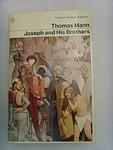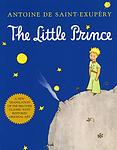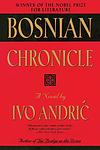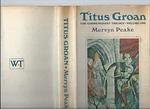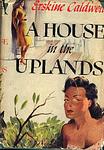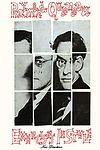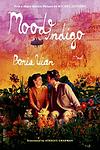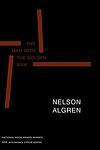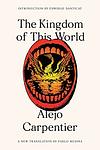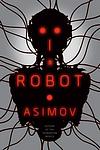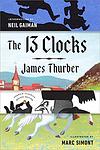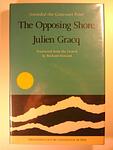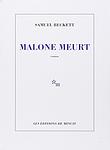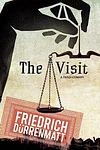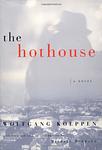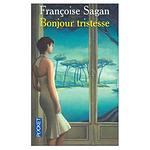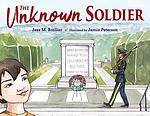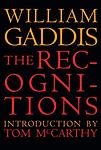1001 Books You Must Read Before You Die
This is one of the 300 lists we use to generate our main The Greatest Books list.
-
Broad and Alien is the World by Ciro Alegría
"Broad and Alien is the World" is a novel that explores the harsh realities of life for indigenous people in the Peruvian Andes under the oppressive rule of landowners. The story follows the struggles and ultimate downfall of the Rucas family as they resist the exploitation and abuse from those in power. The narrative is a poignant critique of the social injustices faced by indigenous communities and their fight for survival and dignity.
The 2435th Greatest Book of All Time -
The Living and the Dead by Patrick White
"The Living and the Dead" is a novel that explores the lives and relationships of the Standish family living in London. The story delves into the complexities of the human condition, as it portrays the characters' struggles with their identities, societal expectations, and the inherent loneliness of existence. The narrative is characterized by its rich, introspective, and often satirical examination of the upper-middle-class life, the disillusionment of youth, and the search for meaning.
The 2435th Greatest Book of All Time -
The Harvesters by Cesare Pavese
"The Harvesters" is an evocative tale set in the rural landscapes of Italy in the early 20th century. The narrative follows a young man who, after a life of hardship and poverty, leaves his village to seek a better life in the city. However, he soon finds himself drawn back to his roots, yearning for the simplicity and authenticity of rural life. The novel explores themes of identity, belonging, and the eternal conflict between progress and tradition, offering a poignant portrayal of the human condition.
The 2435th Greatest Book of All Time -
Conversations in Sicily by Elio Vittorini
"Conversations in Sicily" is a semi-autobiographical novel that explores the journey of a man returning to his native Sicily after many years away. The protagonist's journey is both physical and emotional as he reconnects with his past, his culture, and his mother, while also confronting his disillusionment with the political and social realities of the time. The narrative is filled with poetic and philosophical dialogues, providing a deep exploration of Sicilian life, identity, and the human condition.
The 2435th Greatest Book of All Time -
The Stranger by Albert Camus
The narrative follows a man who, after the death of his mother, falls into a routine of indifference and emotional detachment, leading him to commit an act of violence on a sun-drenched beach. His subsequent trial becomes less about the act itself and more about his inability to conform to societal norms and expectations, ultimately exploring themes of existentialism, absurdism, and the human condition.
The 31st Greatest Book of All Time -
Embers by Sandor Marai
"Embers" is a novel about two old friends who reunite after being apart for 41 years. The story takes place in a secluded castle in the Carpathian Mountains, where the two men confront each other about a long-kept secret that has kept them apart. The narrative delves into themes of friendship, love, loyalty, and betrayal, while exploring the intricate dynamics of human relationships. The novel is a poignant examination of the nature of time and memory, and the ways in which they can shape and define our lives.
The 718th Greatest Book of All Time -
The Royal Game by Stefan Zweig
"The Royal Game" is a gripping novella about a man who, while in solitary confinement by the Nazis, steals a book of past chess games and plays them all in his mind to keep his sanity. Once freed, he becomes a chess master but his mental state is fragile. On a cruise ship, he is challenged to a game by the reigning world champion, leading to a psychological battle that pushes him to the brink of madness.
The 832nd Greatest Book of All Time -
The Glass Bead Game by Hermann Hesse
Set in the 23rd century, the novel revolves around a highly intellectual game, the Glass Bead Game, which incorporates all fields of human and cosmic knowledge. The story follows the life of Joseph Knecht, a scholar who becomes a Magister Ludi (Master of the Game). The book explores his life and thoughts, including his relationships with others and his questioning of the values of his society. The narrative is a profound exploration of human life, knowledge, and spirituality.
The 447th Greatest Book of All Time -
Joseph and His Brothers by Thomas Mann
This novel is a re-imagining of the biblical story of Joseph, known for his coat of many colors. The narrative delves deeply into the psychological aspects of each character, exploring their motivations, flaws, and virtues. The story covers Joseph's life from his early years in Canaan, through his betrayal by his brothers who sell him into slavery in Egypt, his rise to power in Pharaoh's court, and his eventual reconciliation with his brothers. The novel is a rich tapestry of dreams, myths, and rituals, blending biblical tradition with the author's own philosophical insights.
The 502nd Greatest Book of All Time -
The Little Prince by Antoine de Saint-Exupéry
A young prince from a tiny asteroid embarks on a journey across the universe, visiting various planets and meeting their strange inhabitants. Along the way, he learns about the follies and absurdities of the adult world, the nature of friendship, and the importance of retaining a childlike wonder and curiosity. His journey eventually leads him to Earth, where he befriends a fox and learns about love and loss before finally returning to his asteroid.
The 61st Greatest Book of All Time -
Dangling Man by Saul Bellow
Set in Chicago during World War II, the novel follows the life of a young man waiting to be drafted into the army. As he waits, he grapples with his feelings of isolation, frustration, and anxiety, which are exacerbated by his joblessness and the uncertainty of his future. His diary entries reveal his philosophical reflections on life, his struggles in his relationships, and his increasing mental instability as he feels more and more trapped by his circumstances.
The 2435th Greatest Book of All Time -
The Razor's Edge by W. Somerset Maugham
"The Razor's Edge" is a novel that explores the life of a young American, Larry Darrell, who rejects conventional society to search for spiritual enlightenment in the aftermath of World War I. His journey takes him from Illinois to Paris, and eventually to India. The story is narrated by an unnamed author who encounters Larry at various stages of his life, and through his eyes, we see Larry's transformation and the impact it has on the people around him. The novel is a profound exploration of self-discovery, spirituality, and the quest for meaning.
The 841st Greatest Book of All Time -
Transit by Anna Seghers
A German man escapes from a Nazi concentration camp during World War II and finds himself stuck in Marseille, France, where he assumes the identity of a deceased author to secure a transit visa. As he navigates the bureaucratic maze of the immigration process, he becomes entangled in the lives of the refugees around him, including a desperate woman searching for her missing husband, the very man he's impersonating. The novel explores themes of identity, displacement, and the human struggle for freedom.
The 2435th Greatest Book of All Time -
Pippi Longstocking by Astrid Lindgren
The book tells the story of Pippi Longstocking, a young girl with superhuman strength who lives alone in a colorful house in a small Swedish village. With her pet monkey and horse, Pippi embarks on a series of humorous and often absurd adventures, defying societal norms and adult authority with her unconventional wisdom and moral code. Despite her wild antics, Pippi's kindness, generosity, and courage make her a beloved figure in her community.
The 337th Greatest Book of All Time -
Loving by Henry Green
"Loving" is a novel set in an Irish castle during World War II, focusing on the lives of the servants who work there. The narrative provides a detailed and intimate exploration of the relationships, gossip, and everyday routines of the domestic staff, while the war remains a distant threat. The book is known for its unique use of language and dialogue, as well as its exploration of class dynamics.
The 579th Greatest Book of All Time -
Animal Farm by George Orwell
"Animal Farm" is a satirical fable set on a farm where the animals revolt, overthrow their human farmer, and take over the running of the farm for themselves. The story is an allegory of the Russian Revolution and the rise of Stalin, and the tale is told by the animals that inhabit the farm, primarily pigs who become the ruling class. Despite their initial attempts at creating an equal society, corruption and power ultimately lead to a regime as oppressive as the one they overthrew.
The 74th Greatest Book of All Time -
The Bridge on the Drina by Ivo Andrić
"The Bridge on the Drina" is a historical novel that spans four centuries, highlighting the lives and experiences of the inhabitants of a small town in Bosnia. The narrative revolves around a stone bridge, which serves as a symbol of unity and continuity. The book explores the impact of the Ottoman Empire, the Austro-Hungarian Empire, and the onset of World War I on the multicultural community living in the town, capturing the changes, conflicts, and resilience of the people and their cultures.
The 897th Greatest Book of All Time -
Christ Stopped at Eboli: The Story of a Year by Carlo Levi
The book is a memoir about the author's year of exile in a remote region of southern Italy during the fascist regime. It depicts the harsh living conditions, poverty, and backwardness of the area, where the peasants' lives are ruled by superstition and tradition. Despite the difficulties, the author finds beauty and dignity in the people and their way of life, and he paints a vivid picture of their culture, beliefs, and struggles. The title refers to the locals' belief that they have been forgotten by modernity and even by God.
The 1072nd Greatest Book of All Time -
Arcanum 17 by André Breton
"Arcanum 17" is a surrealist exploration of love, loss, and resurrection set amidst the backdrop of World War II. Drawing inspiration from the legend of Melusina, the author uses the symbolism of this mythic figure to discuss the role of women in society and the destructive nature of war. The narrative also delves into themes of renewal, rebirth, and the power of the feminine, all while using the surrealist style to blend reality and dream in a poetic and philosophical discourse.
The 2435th Greatest Book of All Time -
Brideshead Revisited by Evelyn Waugh
The novel is a nostalgic story about the narrator's involvement with the Flyte family, British aristocrats living in a grand mansion called Brideshead. The story explores themes of faith, love, and the decline of the British aristocracy, primarily through the narrator's relationships with the family's Catholic faith and his complicated friendship with the family's son and his love for the daughter. The novel is set in the backdrop of the time period between the two World Wars.
The 183rd Greatest Book of All Time -
Bosnian Chronicle by Ivo Andrić
"Bosnian Chronicle" is a historical novel set in the Bosnian town of Travnik during the Napoleonic Wars. The narrative focuses on the experiences of various diplomats and their families living in Travnik, providing a detailed and vivid depiction of life in Bosnia under Ottoman rule. The story is filled with political intrigue, cultural clashes, and personal dramas, reflecting the tensions and complexities of the period. Through its richly drawn characters and intricate plot, the book offers a profound exploration of history, identity, and the human condition.
The 2435th Greatest Book of All Time -
The Tin Flute by Gabrielle Roy
"The Tin Flute" is a poignant narrative set in the working-class district of Montreal during World War II. The story revolves around a young woman who struggles with poverty and the harsh realities of her life while dreaming of a better future. Despite the harshness of her life, she constantly battles to keep her family together and to find love and happiness, even in the most challenging circumstances. The book vividly portrays the struggles of the working class, the impact of war, and the human spirit's resilience.
The 2435th Greatest Book of All Time -
Nada by Carmen Laforet
"Nada" is a novel that follows the life of a young woman who moves to Barcelona to attend university after the Spanish Civil War. She stays with her eccentric relatives who live in a grand, but decaying mansion. The protagonist struggles to find her identity and independence while dealing with poverty, repression, and the emotional instability of her relatives. The story is a powerful exploration of despair, alienation, and the loss of innocence.
The 2435th Greatest Book of All Time -
Death of Virgil by Hermann Broch
The novel explores the final hours of the Roman poet Virgil, who, while on his deathbed, contemplates the value and impact of his life's work, particularly his unfinished epic, the Aeneid. The narrative is a complex, stream-of-consciousness meditation on art, life, and death, with Virgil wrestling with his desire to burn his epic and the emperor's command to preserve it. The book delves into themes of the meaning of human existence, the role of art in society, and the clash between the individual's inner world and the external world.
The 348th Greatest Book of All Time -
Titus Groan by Mervyn Peake
The novel is a gothic fantasy set in the bizarre and intricate world of Gormenghast Castle, home to the ancient and eccentric Groan family. The story begins with the birth of Titus Groan, the seventy-seventh Earl, who stands to inherit the castle and its strange traditions. The narrative follows the castle's eccentric characters and their bizarre rituals, including the ambitious kitchen boy, Steerpike, who seeks to manipulate the castle's traditions for his own gain. It's a dark and surreal exploration of ritual, power, and madness.
The 536th Greatest Book of All Time -
Zorba the Greek by Nikos Kazantzakis
In this novel, a young intellectual who is immersed in books and ideas embarks on a journey with a passionate and adventurous older man named Zorba. The two men have contrasting personalities, which leads to a series of philosophical discussions and adventures. The story is set in Crete and explores themes of life, death, friendship, love, and the struggle between the physical and intellectual aspects of existence. Zorba's zest for life and his fearlessness in the face of death inspire the young man to embrace a more physical and spontaneous way of living.
The 334th Greatest Book of All Time -
Back by Henry Green
"Back" is a novel about a British man who returns home after being a prisoner of war during World War II. He struggles to adjust to civilian life and is haunted by the loss of his lover, who died while he was away. As he tries to move on, he becomes entangled in a complicated relationship with his lover's half-sister, leading to a poignant exploration of love, loss, and the human capacity for resilience.
The 2435th Greatest Book of All Time -
House in the Uplands by Erskine Caldwell
This novel is set in the South and revolves around the life of a wealthy plantation owner, his neglected wife, and their dysfunctional family. The story explores themes of greed, lust, and power, showcasing the downfall of the family due to their moral corruption and the harsh realities of their plantation lifestyle. The narrative is filled with intense drama, infidelity, and violence, providing a grim view of the Southern aristocracy.
The 2435th Greatest Book of All Time -
The Path to the Nest of Spiders by Italo Calvino
The novel is set in Italy during World War II and follows the journey of a young boy who joins the Italian resistance against the Nazis. The story is a coming-of-age tale that explores the boy's struggle to find his identity amidst the chaos of war. Along the way, he encounters various characters, each with their own stories and perspectives on the war, which further shape his understanding of the world. The title refers to a hidden nest of spiders the protagonist discovers, symbolizing the hidden complexities of life and war.
The 2435th Greatest Book of All Time -
Under the Volcano by Malcolm Lowry
Set in Mexico on the Day of the Dead in 1938, the novel follows the last day in the life of Geoffrey Firmin, a British consul with a severe alcohol addiction. Through his interactions with his estranged wife and half-brother, the book explores themes of despair, betrayal, and the destructive power of addiction, against the backdrop of political and social unrest. The impending eruption of the nearby volcano serves as a metaphor for Firmin's deteriorating mental state and the looming world war.
The 118th Greatest Book of All Time -
If This Is a Man by Primo Levi
This book is a deeply moving and insightful memoir of a survivor of Auschwitz, a Nazi concentration camp during World War II. The author, an Italian Jew, provides a detailed account of his life in the camp, the brutal conditions, the dehumanization, and the struggle for survival. The narrative is a profound exploration of the human spirit, resilience, and the will to live, despite unimaginable horror and suffering. It also raises profound questions about humanity, morality, and the capacity for evil.
The 251st Greatest Book of All Time -
Exercises in Style by Raymond Queneau
This unique book tells the same simple story 99 different ways, each in a different style, voice, or literary form. The narrative is about a man who sees the same stranger twice in one day - once on a bus and later in front of a train station. The book serves as an exploration of the endless possibilities of language and style, highlighting the creativity and versatility of storytelling.
The 2435th Greatest Book of All Time -
The Plague by Albert Camus
The novel is set in the Algerian city of Oran during the 1940s, where a deadly plague sweeps through, causing the city to be quarantined. The story is told through the eyes of a doctor who witnesses the horror and suffering caused by the disease. The narrative explores themes of human resilience, solidarity, and the struggle against the absurdities of life. It also examines how individuals and society respond to death and disease, creating a profound meditation on the nature of existence and human endurance.
The 138th Greatest Book of All Time -
Doctor Faustus by Thomas Mann
The novel is a reimagining of the Faust legend set in the context of the first half of the 20th century and the turmoil of Germany in that period. It tells the story of a composer who makes a pact with the devil, exchanging his soul for unlimited creative genius. The protagonist's life and work reflect the cultural and political journey of Germany leading up to World War II, providing a deep exploration of the individual's role in a society undergoing dramatic change. The novel is also a profound meditation on the nature of time, the art and the artist, and the destructiveness of human ambition.
The 150th Greatest Book of All Time -
Midaq Alley by Najib Mahfuz
Set in an old Cairo neighborhood during World War II, the novel delves into the lives of the residents of a bustling alley, offering a tapestry of human experiences and social issues. Through the stories of a diverse cast of characters, including a young beauty dreaming of a better life, a wealthy businessman seeking love, a cafe owner yearning for his past, and others, the narrative explores themes of love, ambition, and the struggle for personal fulfillment. The alley serves as a microcosm of society, reflecting the larger cultural and political changes occurring in Egypt at the time, and the characters' intertwined lives illustrate the complexities of human nature and the universal quest for happiness and meaning.
The 1975th Greatest Book of All Time -
Froth on the daydream by Boris Vian
"Froth on the Daydream" is a tragic love story set in a surreal world. The protagonist is a wealthy young man who marries a woman he loves deeply. However, their bliss is short-lived when she develops a strange illness - a water lily growing in her lung. As her health deteriorates, so does their wealth and social standing, leading to a bleak and heartbreaking end. This novel is a poignant exploration of love, loss, and the harsh realities of life, all set within a fantastical and dreamlike landscape.
The 931st Greatest Book of All Time -
Journey to the Alcarria by Camilo José Cela
"Journey to the Alcarria" is a travel literature piece that takes the reader on a journey through the Alcarria region in Spain. The protagonist, a solitary traveler, explores the landscape, culture, and people of this region, offering detailed descriptions and observations. The narrative captures the essence of Spain's post-war period, revealing the harsh realities of rural life and the resilience of its people. The book is both a physical journey through a specific place and a metaphorical journey into the human condition.
The 2435th Greatest Book of All Time -
Ashes and Diamonds by Jerzy Andrzejewski
Set at the end of World War II, the book explores the chaotic and morally complex time in Poland as the country transitions from war to peace. The narrative focuses on a young Home Army soldier tasked with assassinating a communist leader. As he grapples with his mission, he falls in love, further complicating his loyalties and convictions. The story provides a deep examination of the personal and political turmoil experienced during this historical period.
The 2435th Greatest Book of All Time -
Disobedience by Alberto Moravia
"Disobedience" is a novel about a young man, Luca, who refuses to serve in the Italian army during World War II. The narrative explores his experiences as he hides from the authorities, the moral dilemmas he faces, his sexual awakening, and his relationship with his mother. His refusal to obey the military draft serves as a symbol of his rebellion against societal norms and expectations, as well as his search for personal identity and freedom.
The 2435th Greatest Book of All Time -
All about H. Hatterr by G. V. Desani
This novel is a unique blend of Eastern philosophy and Western literary technique, following the adventures of its protagonist, a British-educated Indian everyman, as he navigates the complexities of life. The narrative is filled with humor, satire, and linguistic playfulness, as the protagonist interacts with various eccentric characters and experiences numerous absurd situations. The book is a critique of both British colonialism and traditional Indian society, offering a distinctive and insightful perspective on the human condition.
The 1326th Greatest Book of All Time -
Cry, the Beloved Country by Alan Paton
"Cry, the Beloved Country" is a novel about a black Anglican priest from South Africa's rural Natal region who embarks on a journey to Johannesburg in search of his sister and son. The priest grapples with the racial injustice and social inequality of apartheid-era South Africa, while his son becomes involved in political activism and is wrongfully accused of a crime. The novel explores themes of love, fear, and social justice, while highlighting the destructive effects of apartheid on the human spirit and the South African landscape.
The 338th Greatest Book of All Time -
In the Heart of the Sea by Nathaniel Philbrick
This historical narrative tells the true story of the 19th-century whaleship Essex, which was rammed and sunk by a sperm whale in the South Pacific. Stranded thousands of miles from land, the crew of the Essex was pushed to their limits and forced to do the unthinkable to stay alive. The tale explores the harrowing ordeal of these men through their long journey at sea, their encounters with nature's fury, hunger, disease, and their own fear and despair.
The 2388th Greatest Book of All Time -
This Way for the Gas, Ladies and Gentlemen by Tadeusz Borowski
This book is a collection of short stories based on the author's experiences as a prisoner in Auschwitz during the Holocaust. Each story provides a harrowing, yet matter-of-fact, account of life in the concentration camp, from the brutal work details to the constant threat of death. The author's stark and unflinching portrayal of the horrors of Auschwitz serves as a powerful testament to the human capacity for survival and resilience in the face of unimaginable cruelty.
The 1464th Greatest Book of All Time -
Death Sentence by Maurice Blanchot
"Death Sentence" is a philosophical novella that explores the themes of death, love, and the nature of narrative. The story is divided into two parts, each focusing on a different protagonist who is dealing with the impending death of a loved one. Through their experiences and internal monologues, the novel delves into the complexities of human emotions and the existential dread associated with mortality. The narrative is further complicated by the author's experimental writing style, which challenges traditional storytelling conventions and encourages readers to question their understanding of reality.
The 2435th Greatest Book of All Time -
Nineteen Eighty Four by George Orwell
Set in a dystopian future, the novel presents a society under the total control of a totalitarian regime, led by the omnipresent Big Brother. The protagonist, a low-ranking member of 'the Party', begins to question the regime and falls in love with a woman, an act of rebellion in a world where independent thought, dissent, and love are prohibited. The novel explores themes of surveillance, censorship, and the manipulation of truth.
The 4th Greatest Book of All Time -
The Man with the Golden Arm by Nelson Algren
"The Man with the Golden Arm" is a novel that tells the story of Frankie Machine, a talented card dealer and drummer in post-World War II Chicago who becomes addicted to morphine. The narrative vividly portrays his descent into addiction and his struggles with poverty and crime, while also exploring themes of despair, corruption, and redemption. The book is notable for its gritty depiction of life in the urban underbelly and its nuanced characterizations.
The 986th Greatest Book of All Time -
The Kingdom of This World by Alejo Carpentier
"The Kingdom of This World" is a historical novel that explores the tumultuous period of the Haitian Revolution and its aftermath through the eyes of a slave named Ti Noël. The narrative weaves together elements of magical realism and historical fact, highlighting the brutalities of slavery, the struggle for freedom, and the rise and fall of leaders. The novel also delves into the themes of power, corruption, and the cyclical nature of history, while showcasing the rich culture and folklore of Haiti.
The 792nd Greatest Book of All Time -
The Heat of the Day by Elizabeth Bowen
Set in London during World War II, "The Heat of the Day" is a story about a love triangle between Stella Rodney, her lover Robert Kelway, and Harrison, a man who claims to be an intelligence agent. Harrison informs Stella that Robert is selling secrets to the enemy, and in exchange for his silence, he wants Stella all to himself. The novel explores themes of trust, deceit, and the complexities of love against the backdrop of a city under siege.
The 1271st Greatest Book of All Time -
Love in a Cold Climate by Nancy Mitford
Set in the 1930s, the novel revolves around the lives of British aristocracy, focusing on the love lives of young women in high society. The protagonist's cousin, Polly, shocks her family by choosing to marry a middle-aged, socially inferior man instead of a wealthy aristocrat. Meanwhile, the protagonist herself navigates her own romantic relationships amidst a backdrop of lavish parties, eccentric relatives, and societal expectations. The story offers a humorous and satirical look at the British upper class, highlighting their idiosyncrasies and the pressures they face.
The 960th Greatest Book of All Time -
The Case of Comrade Tulayev by Victor Serge
"The Case of Comrade Tulayev" is a political novel set in the Stalinist era of the Soviet Union. The story begins with the murder of a high-ranking Soviet official, Comrade Tulayev, which sets off a series of events leading to the arrest and execution of innocent people. It provides an in-depth exploration of the paranoia, fear, and injustice that characterized Stalin's regime, showing the human cost of political purges and the absurdity of the bureaucratic system.
The 825th Greatest Book of All Time -
The Garden Where the Brass Band Played by Simon Vestdijk
This novel explores the life of a young boy named Nol Rieske, who falls in love with the daughter of a bandmaster in a small Dutch town. As he grows older, he becomes a successful musician, but his obsession with the bandmaster's daughter, who is mentally ill, continues to dominate his life. The story is a detailed exploration of a man's lifelong infatuation and its profound impact on his personal and professional life.
The 2435th Greatest Book of All Time -
I, Robot by Isaac Asimov
The book is a collection of nine short stories that revolve around the interaction of humans and robots. The stories are tied together by a framing narrative featuring a reporter interviewing a retiring robopsychologist, Dr. Susan Calvin. The stories explore the three "Laws of Robotics" and how they are interpreted and manipulated by humans and robots. Throughout the stories, the robots often end up behaving in unexpected ways due to their interpretation of these laws, leading to thought-provoking and often ironic outcomes.
The 560th Greatest Book of All Time -
The Grass Is Singing by Doris Lessing
Set in 1940s Southern Rhodesia (now Zimbabwe), this novel explores the life of a white woman, Mary, who marries a poor farmer, Dick Turner, and moves to the African veld. The story delves into their failing farm, their troubled marriage, and the racial tension surrounding their life. The isolation and harsh African environment take a toll on Mary's sanity, leading to a complex and ultimately fatal relationship with her black houseboy, Moses. The book provides a stark examination of the inherent racism of colonialism and the tragic consequences it can have on both the oppressors and the oppressed.
The 1384th Greatest Book of All Time -
A Town Like Alice by Nevil Shute
"A Town Like Alice" is a novel about a young Englishwoman, who is captured by Japanese forces during World War II and forced to march with other women and children across Malaya. During her ordeal, she meets an Australian prisoner of war, whom she later seeks out in Australia after the war. With the help of an unexpected inheritance, she uses her entrepreneurial spirit to transform a desolate Australian town into a thriving community, similar to a quaint English village she once knew, hence creating a 'town like Alice'.
The 1171st Greatest Book of All Time -
The Moon and the Bonfires by Cesare Pavese
The story follows a man who, after making a fortune in America, returns to his small hometown in Italy after World War II. He finds the place significantly changed, with many of his old friends either dead or drastically different. As he tries to reconcile his memories with the new reality, he also grapples with his own identity and the impact of the war on his home. The narrative explores themes of change, identity, and the lasting effects of war.
The 740th Greatest Book of All Time -
Gormenghast by Mervyn Peake
Set in a vast, crumbling castle named Gormenghast, the story follows the life of Titus Groan, the heir to the Earl of Groan. The narrative explores the complex, rigidly structured society within the castle and the struggles and intrigues of its eccentric characters, particularly the scheming kitchen boy Steerpike. As Titus grows older, he begins to rebel against the stifling traditions of Gormenghast, setting the stage for a dramatic clash between the old and the new.
The 514th Greatest Book of All Time -
The 13 Clocks by James Thurber
The book tells the story of a cold-hearted Duke who has frozen time, stopping the 13 clocks in his castle, and his beautiful niece, the Princess Saralinda. The Duke sets impossible tasks to her suitors, turning them into stone when they fail. However, a mysterious prince, disguised as a minstrel and guided by a magical figure known as the Golux, arrives at the castle, determined to complete the tasks, thaw the clocks, and win the Princess's hand.
The 2435th Greatest Book of All Time -
The Labyrinth of Solitude by Octavio Paz
This book is a profound and vivid exploration of Mexico's character, culture, and identity. The author delves into Mexico's history, politics, and psyche, examining the country's deep solitude and its impact on the national character. The book provides a comprehensive analysis of Mexican society, its myths, symbols, and rituals, offering a deep understanding of the Mexican people's unique way of perceiving the world. It also discusses the influence of the United States on Mexico and the complex relationship between the two countries.
The 1125th Greatest Book of All Time -
L'Abbé C by Georges Bataille
"L'Abbé C" is a provocative novel that explores the life of a Catholic priest who is caught in a web of forbidden love and sexual desire. The story is set in the early 20th century and follows the tormented life of an unnamed priest who is struggling with his religious vows and his illicit feelings for a young woman. This intense psychological novel delves deep into the themes of faith, morality, and the nature of desire, presenting a stark and controversial portrayal of religious life.
The 2435th Greatest Book of All Time -
The Guiltless by Hermann Broch
"The Guiltless" is a novel that explores the disintegration of values and the rise of fascism in Germany between the two World Wars. It follows the lives of several characters, including a businessman, a musician, and a murderer, whose stories intertwine to paint a picture of a society in moral and social decline. The narrative delves into their personal struggles and moral dilemmas, reflecting the broader societal issues of the time and offering a critique of the political climate that allowed for the rise of totalitarian regimes.
The 2435th Greatest Book of All Time -
Barabbas by Par Lagerkvist
This novel tells the story of Barabbas, the man who was pardoned instead of Jesus Christ, according to the New Testament. After being released, Barabbas grapples with his newfound freedom and the guilt of being spared at the expense of Jesus. As he witnesses the rise of Christianity and the profound impact Jesus' teachings have on those around him, he struggles with his own beliefs and the meaning of his existence. The narrative explores themes of faith, redemption, and the human condition.
The 891st Greatest Book of All Time -
The End of the Affair by Graham Greene
Set in London during and just after World War II, the novel revolves around a love affair between Maurice Bendrix, a writer, and Sarah Miles, the wife of a civil servant. The story is narrated by Bendrix, who is obsessed with Sarah and hires a private investigator to follow her when he suspects she's having another affair. The novel explores themes of love, hate, and the existence of God, with Sarah's faith playing a significant role in the narrative.
The 284th Greatest Book of All Time -
Molloy by Samuel Beckett
"Molloy" is a complex and enigmatic novel that follows the journey of its eponymous character, an elderly, disabled vagabond, who is tasked with finding and killing a certain person. The narrative is split into two parts: the first is told from Molloy's perspective as he navigates his way through a strange and often hostile world, while the second follows a detective named Moran who is assigned to find Molloy. The novel is renowned for its challenging narrative structure, its bleak and absurdist humor, and its profound exploration of themes such as identity, existence, and the human condition.
The 241st Greatest Book of All Time -
The Rebel by Albert Camus
"The Rebel" is a philosophical exploration of rebellion and revolution. It dissects the nature and origins of rebellion, arguing that it arises from a basic human refusal to accept injustice. The book delves into the many forms rebellion can take, from personal revolt to political revolution, and examines the consequences and ethics of each. The author also critically evaluates the rebellious attitudes of various historical figures and movements, highlighting the potential for rebellion to either affirm or destroy human dignity.
The 1405th Greatest Book of All Time -
The Catcher in the Rye by J. D. Salinger
The novel follows the story of a teenager named Holden Caulfield, who has just been expelled from his prep school. The narrative unfolds over the course of three days, during which Holden experiences various forms of alienation and his mental state continues to unravel. He criticizes the adult world as "phony" and struggles with his own transition into adulthood. The book is a profound exploration of teenage rebellion, alienation, and the loss of innocence.
The 5th Greatest Book of All Time -
The Opposing Shore by Julien Gracq
The book is a captivating tale of a young military officer who is posted to a remote coastal fortress in an imaginary Mediterranean country. As he awaits a long-anticipated enemy invasion, he finds himself drawn into the local customs and intrigued by the enigmatic presence of the enemy on the opposing shore. The narrative delves into themes of waiting, the passage of time, and the psychological impact of imagined threats, all set against a backdrop of political and military tension.
The 1493rd Greatest Book of All Time -
Foundation by Isaac Asimov
This science fiction novel centers around Hari Seldon, a mathematician who has developed a branch of mathematics known as psychohistory. With it, he can predict the future on a large scale. Seldon foresees the imminent fall of the Galactic Empire, which encompasses the entire Milky Way, and a dark age lasting 30,000 years before a second great empire arises. To shorten this period of barbarism, he creates two Foundations at opposite ends of the galaxy. The book follows the first few centuries of the Foundation's existence, focusing on the scientists as they develop new technologies and negotiate with neighboring planets.
The 247th Greatest Book of All Time -
Malone Dies by Samuel Beckett
"Malone Dies" is a narrative that delves into the mind of an elderly man who lies in a decrepit room, slowly dying. Throughout the novel, the protagonist grapples with his impending demise, while reflecting on his past. He also creates characters and stories within his mind to cope with his solitude and despair. The novel, characterized by its stream-of-consciousness style and bleak outlook, is a profound exploration of the human condition, mortality, and the nature of existence.
The 355th Greatest Book of All Time -
The Day of the Triffids by John Wyndham
In this post-apocalyptic novel, the majority of the world's population is blinded by a comet shower, leaving society vulnerable to the Triffids - venomous, mobile plants that were previously farmed for their oil. The protagonist, who retains his sight after being hospitalized during the comet shower, must navigate this new world, dealing with the Triffids and the desperate remnants of humanity. The novel explores themes of survival, adaptation, and the inherent fragility of civilization.
The 618th Greatest Book of All Time -
Memoirs of Hadrian by Marguerite Yourcenar
"Memoirs of Hadrian" is a historical novel that presents a fictional autobiography of the Roman Emperor Hadrian, who reigned from 117 to 138 AD. Narrated in the first person, the novel explores Hadrian's ascension to the throne, his administration, his love for the young Antinous, and his philosophical reflections on life and death. The narrative is framed as a letter to his successor, Marcus Aurelius, offering insights into the complexities of power, the nature of leadership, and the human condition.
The 307th Greatest Book of All Time -
The Hive by Camilo José Cela
"The Hive" is a novel set in post-Civil War Spain, during the harsh years of Madrid's postwar recovery. It provides a gritty and realistic portrayal of the struggles faced by ordinary citizens in a society marked by deprivation and repression. The narrative is non-linear and fragmented, featuring a vast array of characters from various social classes, whose lives intertwine in a depiction of the bleakness and despair of the time. The book was initially banned in Spain due to its critical view of Franco's regime.
The 1254th Greatest Book of All Time -
Wise Blood by Flannery O'Connor
"Wise Blood" is a novel about a young man named Hazel Motes, who returns home to Tennessee after serving in World War II and finds his religious beliefs shaken. He becomes a street preacher, founding the Church Without Christ to preach his message of faithlessness. The book explores themes of redemption, faith, and the struggle between belief and atheism as Hazel interacts with a variety of eccentric characters and faces his own internal battles.
The 485th Greatest Book of All Time -
The Old Man and the Sea by Ernest Hemingway
An aging Cuban fisherman struggles with a giant marlin far out in the Gulf Stream, isolated from the world and from human help. For days, he fights the marlin alone, admiring its strength, dignity, and faithfulness to its identity—its destiny is as true as his as a fisherman. He finally kills the marlin, but sharks attack and devour it before he can return to the shore. The fisherman returns home empty-handed but remains undefeated, having proven his abilities to himself.
The 81st Greatest Book of All Time -
Invisible Man by Ralph Ellison
The novel is a poignant exploration of a young African-American man's journey through life, where he grapples with issues of race, identity, and individuality in mid-20th-century America. The protagonist, who remains unnamed throughout the story, considers himself socially invisible due to his race. The narrative follows his experiences from the South to the North, from being a student to a worker, and his involvement in the Brotherhood, a political organization. The book is a profound critique of societal norms and racial prejudice, highlighting the protagonist's struggle to assert his identity in a world that refuses to see him.
The 29th Greatest Book of All Time -
The Judge and His Hangman by Friedrich Dürrenmatt
This book is a crime novel set in Switzerland, where a police lieutenant is tasked with solving the murder of his former colleague. The narrative explores themes of justice, revenge, and the blurred lines between good and evil. The lieutenant, despite being terminally ill, is determined to solve the case and in the process, he uncovers a web of corruption and deceit that forces him to question his own morality and the nature of justice. The story is a philosophical examination of the criminal justice system and the moral dilemmas faced by those who enforce the law.
The 2435th Greatest Book of All Time -
Excellent Women by Barbara Pym
Set in post-World War II England, the novel centers around a spinster named Mildred Lathbury, who lives a quiet life, devoted to her church and helping others. Her life is disrupted when a young couple moves into her building and she becomes embroiled in their marital troubles. The novel explores themes of societal expectations for women, the role of religion in everyday life, and the complexities of human relationships.
The 619th Greatest Book of All Time -
Thousand Cranes by Yasunari Kawabata
"Thousand Cranes" is a story set in post-war Japan, revolving around the life of a young man who is entangled in a complex relationship with three women. These women are linked to his deceased father and a shared tea ceremony set, symbolizing the cultural and generational tensions that exist. The narrative explores themes of love, loneliness, tradition, and the haunting burden of the past.
The 1084th Greatest Book of All Time -
Go Tell it on the Mountain by James Baldwin
This novel explores the role of the Christian Church in the lives of African-Americans, both as a source of repression and moral hypocrisy and as a source of inspiration and community. It also, more broadly, examines the role of the Pentecostal Church in the African American experience. The narrative focuses on a fourteen-year-old boy's struggle to discover his identity amidst a family filled with secrets and a life marked by a religious community's strict moral code.
The 258th Greatest Book of All Time -
Casino Royale by Ian Fleming
A British secret agent is tasked with bankrupting a French communist and paymaster of a Russian secret agency at a high-stakes card game in a casino. As he navigates the dangerous world of espionage, he encounters a beautiful woman who is being blackmailed by the enemy. The agent must outwit his opponents and survive numerous attempts on his life, all while grappling with his growing feelings for the woman.
The 504th Greatest Book of All Time -
Junky by William S. Burroughs
This novel is a semi-autobiographical account of the author's life as a drug addict in the 1950s. The protagonist, living in New York City, becomes addicted to heroin and resorts to petty crime to support his habit. As he navigates the seedy underworld of drug addiction, he experiences the highs and lows of substance abuse, the desperate scramble for the next fix, and the constant threat of arrest. The book offers a stark, brutally honest portrayal of addiction and its effects on the human psyche.
The 1316th Greatest Book of All Time -
Lucky Jim by Kingsley Amis
"Lucky Jim" is a comic novel that follows the life of Jim Dixon, a young and disillusioned lecturer at a provincial British university. Struggling with his job and his pretentious boss, Dixon navigates through a series of humorous and often absurd situations, including a disastrous public lecture and a chaotic weekend at his boss's house. The novel satirizes the snobbishness and hypocrisy of the academic world, and explores themes of class, ambition, and the struggle to find personal authenticity in a conformist society.
The 237th Greatest Book of All Time -
The Lost Steps by Alejo Carpentier
The novel tells the story of a disillusioned American musicologist who leaves his life in New York City to embark on a journey to an untouched, primitive part of the Amazon jungle in South America. He is in search of ancient musical instruments. Along the way, he experiences a spiritual and philosophical transformation as he reconnects with nature and the primal roots of humanity. He also falls in love with a native woman, further deepening his connection to the land and its people.
The 705th Greatest Book of All Time -
The Hothouse by Wolfgang Koeppen
"The Hothouse" is a post-World War II novel that provides a critique of German society through the eyes of a disillusioned civil servant. The protagonist, struggling with the moral and political complexities of the newly formed Federal Republic of Germany, is caught in a web of bureaucracy, corruption, and personal dilemmas. The narrative, filled with vivid and darkly humorous imagery, offers a stark depiction of the political climate and social unrest of post-war Germany.
The 2435th Greatest Book of All Time -
The Long Goodbye: A Novel by Raymond Chandler
This novel follows the story of a hard-boiled detective in Los Angeles who becomes embroiled in a complex case when he befriends a drunk named Terry Lennox. After Lennox's wife is found dead, Lennox disappears to Mexico and the detective is left to unravel the mystery. The detective then takes on another case of a missing husband, which becomes intertwined with the Lennox case, leading to a web of deceit, corruption, and murder. The detective's pursuit of the truth leads him through a gritty and corrupt world, testing his resolve and morality.
The 160th Greatest Book of All Time -
The Go-Between by L. P. Hartley
Set in the summer of 1900, the novel follows a young boy who visits a friend's family estate and becomes an unwitting messenger in an illicit affair between his friend's older sister and a local farmer. As the boy navigates the complexities of the adult world and the rigid class system of the time, he experiences a loss of innocence that has lasting effects on his life. The narrative explores themes of nostalgia, memory, and the corrupting power of class and wealth.
The 928th Greatest Book of All Time -
The African Child by Camara Laye
"The African Child" is a semi-autobiographical novel that follows the journey of a young boy from his childhood in Guinea to his adolescence. The narrative captures the boy's experiences growing up in a traditional African society, his rites of passage, his relationship with his family, particularly his blacksmith father, and his eventual departure for studies in France. The book provides a vivid portrayal of the rich cultural traditions, beliefs, and values of the Malinke people, while also exploring themes of identity, change, and the tension between tradition and modernity.
The 1521st Greatest Book of All Time -
A Day in Spring by Ciril Kosmač
"A Day in Spring" is a poignant narrative set in a small Slovenian village during World War II. The story follows a young boy who, after losing his parents, is taken in by a kind-hearted, yet poor, elderly couple. As the war rages on, the village is caught in the crossfire and the boy is forced to confront the harsh realities of life, death, and survival. The book offers a gripping portrayal of the human spirit's resilience in the face of adversity.
The 2435th Greatest Book of All Time -
A Ghost at Noon by Alberto Moravia
A Ghost at Noon is a tale of a troubled marriage set against the backdrop of Rome and Capri. The story follows a screenplay writer who is struggling with his failing marriage and the production of his new film. As his wife becomes infatuated with their young guide in Capri, the writer becomes increasingly paranoid and jealous, ultimately leading to the collapse of their relationship. The narrative parallels the story of Homer's Odyssey, which the protagonist is adapting for the screen, adding another layer of complexity to the story.
The 1488th Greatest Book of All Time -
Story of O by Pauline Reage
"Story of O" is a tale of female submission involving a beautiful Parisian fashion photographer named O, who is taught to be constantly available for any form of sexual conduct, to ensure her lover's satisfaction. As part of her training, she agrees to be regularly stripped, bound, whipped, and shared among several men. The story explores the themes of love, freedom, and the paradox of control and power in sexual relationships.
The 1275th Greatest Book of All Time -
Under the Net by Iris Murdoch
"Under the Net" is a novel featuring a struggling writer living in London who is forced to reevaluate his life after being evicted from his flat. He embarks on a series of misadventures, meeting a variety of eccentric characters and getting involved in a dog-napping scheme. Throughout his journey, he contemplates philosophical ideas about truth, art, and personal freedom, ultimately leading to his self-discovery and transformation.
The 807th Greatest Book of All Time -
Lord of the Flies by William Golding
A group of British boys are stranded on an uninhabited island after their plane crashes during wartime. Initially, they attempt to establish order, creating rules and electing a leader. However, as time passes, their civility erodes, and they descend into savagery and chaos. The struggle for power intensifies, leading to violence and death. The novel explores themes of innocence, the inherent evil in mankind, and the thin veneer of civilization.
The 56th Greatest Book of All Time -
The Mandarins by Simone de Beauvoir
"The Mandarins" is a novel that explores the personal and political lives of a group of intellectuals in post-World War II France. The narrative delves into their struggles with ethical dilemmas, political ideologies, and personal relationships in a rapidly changing world. The book is known for its exploration of existentialism and feminism, providing a vivid portrayal of the human condition and the complexities of freedom.
The 586th Greatest Book of All Time -
Bonjour Tristesse by Francoise Sagan
This novel centers around a 17-year-old girl living with her playboy father in the French Riviera. The pair lead a carefree, hedonistic lifestyle until the father decides to remarry, causing the protagonist to hatch a plan to prevent the marriage and return to their old way of life. The story explores themes of youth, love, and the struggle between desire and morality.
The 394th Greatest Book of All Time -
Death in Rome by Wolfgang Koeppen
"Death in Rome" is a post-World War II novel that explores the lives of a German family, their friends, and associates during a reunion in Rome. Each character is representative of a different aspect of German society, and their interactions and experiences in the city serve as a commentary on the nation's struggle to come to terms with its recent past. The book also explores the themes of guilt, denial, and the lingering effects of war.
The 2435th Greatest Book of All Time -
The Sound of Waves by Yukio Mishima
The novel is a classic tale of first love between a young fisherman and a pearl diver in a remote Japanese coastal village. The story is set in the post-war era and it explores themes of love, tradition, and the power of nature. The fisherman's love for the pearl diver is tested by the village's gossip and the jealousy of a wealthy rival. Despite the challenges, their love remains pure and steadfast, mirroring the timeless and unchanging rhythm of the sea and the cycles of nature.
The 2435th Greatest Book of All Time -
The Unknown Soldier by Väinö Linna
The Unknown Soldier is a profound narrative of the Continuation War between Finland and the Soviet Union during World War II. The story follows a machine gun company from diverse backgrounds and social classes, portraying their experiences, camaraderie, and the harsh realities of war. It offers a balanced perspective on the conflict, highlighting individual heroism, the brutality of warfare, and the mundane aspects of military life. The book is renowned for its realistic depiction of the war and its impact on the soldiers.
The 1336th Greatest Book of All Time -
I'm Not Stiller by Max Frisch
The book is a profound exploration of identity and the human condition, revolving around a man who is arrested upon his return to his home country, Switzerland, after spending time in America. Although he insists he is not the man, Stiller, that everyone believes him to be, his protests are ignored. The story unfolds as he writes in his prison cell, reflecting on his past life and relationships, and grappling with the question of who he truly is. It's a thought-provoking narrative that challenges conventional notions of selfhood and personal identity.
The 681st Greatest Book of All Time -
A Violent Life by Pier Paolo Pasolini
"A Violent Life" explores the journey of a young man from the slums of Rome who becomes entangled in the world of crime. As he navigates through this violent and chaotic life, he is confronted with the harsh realities of poverty, injustice, and the struggle for survival. The narrative provides a stark and unflinching examination of the underbelly of Italian society, revealing the deep-seated corruption and systemic inequality that pervades it. The protagonist's life is a testament to the destructive cycle of violence and despair that traps the marginalized and underprivileged.
The 1792nd Greatest Book of All Time -
The Recognitions by William Gaddis
The novel is a complex and lengthy examination of authenticity and forgery. It tells the story of a young man who becomes a master forger of Old Masters paintings, while exploring themes of identity, religion, and art. As the plot unfolds, the protagonist grapples with his own authenticity in a world obsessed with appearances and material success. The narrative is interspersed with philosophical and religious discussions, making it a challenging yet thought-provoking read.
The 632nd Greatest Book of All Time -
The Burning Plain and Other Stories by Juan Rulfo
"The Burning Plain and Other Stories" is a collection of short narratives set in the harsh rural areas of Mexico, depicting the brutal realities of peasant life. The stories are filled with characters who are haunted by their past, living in extreme poverty, and often meeting violent ends. The book is renowned for its stark, realistic portrayal of life and its exploration of the human capacity for hope and survival in the face of despair.
The 970th Greatest Book of All Time
The Book, 996 Books
A book edited by Peter Boxall, and written by over 100 hundred international critics.
Added about 5 years ago.
This list has a weight of 96%. To learn more about what this means please visit the Rankings page.
Here is a list of what is decreasing the importance of this list:
- List: contains over 500 books(Quantity over Quality)
If you think this is incorrect please e-mail us at [email protected].








